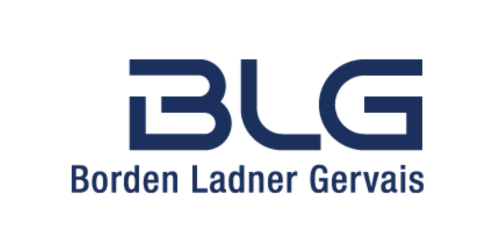Regulatory Rundown: RPAA, Open Banking, Rate Cap, AML
Abstract: In the 2024 Canadian Lenders Summit Panel, “Regulatory Rundown: RPAA, Open Banking, Rate Cap, AML”, Matt Connors, Financial Services Expert at BLG LLP, breaks down the latest developments in Canada’s regulatory landscape, including the Retail Payments Activities Act (RPAA), Open Banking initiatives, rate cap regulations, and Anti-Money Laundering (AML) requirements. 👉 Check out the full video here. 👀
Matt: I’ll cover four major regulatory areas shaping the payments and lending landscape.
1. Retail Payment Activities Act (RPAA)
- Overview:
- The RPAA, effective November 1, introduces a new regime for regulating payments companies traditionally unregulated in Canada. It excludes banks, trust companies, and insurance firms, focusing instead on non-regulated payment institutions.
- Recent guidance from the Bank of Canada now requires certain lending entities, like buy-now-pay-later (BNPL) companies, to register under the RPAA.
- Key Points:
- The RPAA identifies five core payment functions. Companies performing any of these functions may need to register unless the activity is deemed “incidental.”
- “Incidental” is subjective and lacks clear definitions, leaving room for interpretation. The Bank of Canada’s recent case scenarios provide insights into compliance obligations for lenders.
- Registration under the RPAA involves a 15-day window, ending November 15. Compliance obligations, including cybersecurity and safeguarding customer funds, take effect in September next year.
Tal: What challenges do companies face with this new law?
Matt: Companies are navigating ambiguous definitions and subjective criteria. Without precedents, it’s difficult to predict how regulators will interpret certain activities. Detailed analysis and legal counsel are critical.
2. Anti-Money Laundering (AML) Regulations
- Expansion:
- As of October 11, mortgage lenders, administrators, and brokers must comply with AML regulations. Future expansions may include leasing and factoring companies, potentially by 2025.
- Compliance Essentials:
- Develop a compliance program, appoint a compliance officer, conduct risk assessments, and implement KYC protocols.
- Report suspicious transactions and sanction evasion attempts to FINTRAC (Canada’s AML regulator).
- Global Context:
- Canada’s upcoming FATF audit has spurred stricter enforcement of AML regulations across industries.
Tal: Can you share examples of fintech challenges with AML compliance?
Matt: Fintechs often lack internal resources for compliance, relying heavily on external consultants, which can be costly. FINTRAC’s broadened definition of money service businesses post-2022 protests has also caused confusion, leading to delayed compliance efforts.
3. Open Banking
- Current Status:
- The Consumer-Driven Banking Act, passed in June, aims to allow consumers to securely share financial data for better product offerings. Implementation is still in early stages.
- Benefits and Risks:
- The regime will eliminate risky practices like screen scraping. Initially, it will focus on financial data like payment and loan information. Expanding to other sectors like health data is being discussed.
- Regulatory Oversight:
- The Financial Consumer Agency of Canada (FCAC) will regulate open banking. Significant groundwork, including hiring and policy development, is ongoing.
Tal: What’s the timeline for full implementation?
Matt: Given the complexities, we’re years away. A comparison to the RPAA’s multi-year rollout underscores the lengthy process.
4. Criminal Rate of Interest
- Key Changes:
- Effective January 1, 2025, the annual criminal interest rate drops to 35%, including fees like convenience and service charges.
- Exemptions apply to loans over $500,000 or under specific conditions (e.g., APR below 48% for certain loans).
- Impact:
- High-risk credit markets and non-prime lenders must review lending models and agreements to ensure compliance before the deadline.
Tal: How should companies prepare?
Matt Connors: Adopt a conservative approach when calculating interest and fees. If uncertain, consult legal counsel to avoid inadvertent breaches.
Audience Question: Can you share fintech examples struggling with regulatory issues?
Matt: Many fintechs lack compliance infrastructure, prioritizing growth over regulatory adherence. The expansion of FINTRAC’s money service business definition has created significant challenges.
Audience Question: Do optional fees count toward the criminal interest rate?
Matt: It depends on contract specifics. Courts review these on a case-by-case basis. A conservative calculation approach is advisable to ensure compliance.
Tal: That concludes our panel. Thank you, Matt, for your insights, and thanks to everyone for participating. If you have further questions, please connect with Matt after the session. Thank you Canadian Lenders Association for hosting us! 👉 Check out the full video here. 👀
Sign up for our 2025 Summit Series



